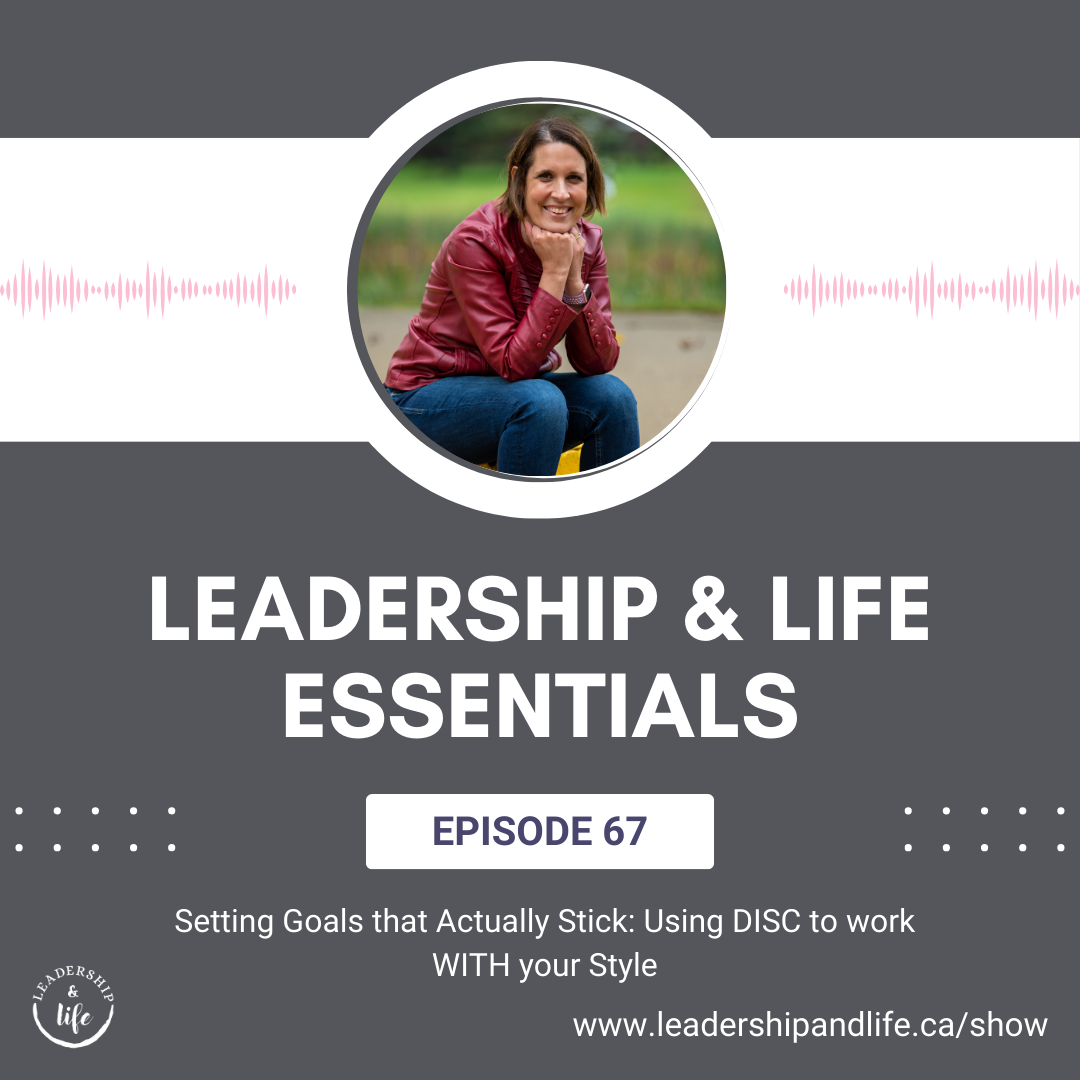
DISC Profiles
Unlock the Power of Behaviour Profiles for Better Communication and Stronger Teams
✓ Reduced Conflict
✓ Enhanced Communication
✓ Effective Collaboration
Transform Your Leadership and Unlock Your Team’s Full Potential with DISC
Are you ready to take your leadership skills to the next level and create a team that’s unstoppable? Do you want to understand the key to effective communication, collaboration, and performance within your team? If so, DISC is the tool you've been waiting for.
What if you could unlock the secret to what truly motivates and drives your team members? What if you could finally understand how to inspire them to perform at their best—without the endless guesswork?
Imagine this:
A team that works together seamlessly because you understand exactly how to communicate with each person.
Meetings that are productive and collaborative, where everyone feels heard and contributes in their own way.
Reduced conflict because you’ve built a culture of trust, clarity, and understanding.
Stronger relationships where your team feels valued, supported, and engaged.
DISC Profile Assessments and Training can make all of this happen!
What is Extended DISC?
DISC is a powerful tool that breaks down communication into four simple styles—Dominance, Influence, Steadiness, and Conscientiousness.
With DISC, you can gain deep insights into the behaviour and preferences of each team member (and yourself!), so you can communicate more effectively, manage more confidently, and lead with empathy.
Extended DISC built an assessment which determines someone’s main style. We generally sit most comfortably in one of these quadrants, but can learn to adapt to each of them.
We can function in any quadrant; some are just more natural (and take less energy and others are not natural (and take more energy). Under stress, we will generally revert to our natural (and more) comfortable style.
“Jacquie’s knowledgeable, compassionate, and thorough guidance when assisting our team with our DISC profile assessment has changed our current team dynamic so extensively that each member will carry the impact of our learning with Jacquie into every role we have moving forward. ”
Dominance: Direct, results-driven, and decisive
Influence: Outgoing, enthusiastic, and relationship-focused
Steadiness: Patient, supportive, and reliable.
Conscientiousness: Detail-oriented, analytical, and quality-focused.
Click any of the buttons above to learn more about that style
Why DISC Works:
Every team is made up of unique individuals, each with their own strengths and challenges. DISC gives you a roadmap to understand what makes each person tick, from how they prefer to receive feedback to what motivates them under pressure. This insight is the game-changer you’ve been looking for to lead with confidence.
Tangible Results:
Clearer Communication Strategies
Gain specific techniques for adapting communication to connect more effectively with others, leading to fewer misunderstandings and smoother interactions.Enhanced Team Dynamics
Discover insights into team members’ behaviors, allowing leaders and teammates to leverage strengths, address challenges, and foster collaboration.Personalized Development Pathways
Receive actionable guidance on how to manage stressors, improve productivity, and build on personal strengths for long-term growth and resilience.
Who Can Benefit?
Individuals: Gain self-awareness, understand personal communication styles, and enhance interpersonal relationships.
Managers: Improve team dynamics, adapt leadership styles to individual team members, and facilitate better communication
Team: Enhance collaboration, recognize diverse strengths and blind spots, and foster a supportive team culture.
HR Professionals: Establish a shared language for communication and understanding across teams. Support ongoing training to improve team cohesion, reduce interpersonal conflicts, and enhance a collaborative environment.
Organizations: Improve overall productivity, create a cohesive organizational culture and resolve conflicts effectively.
Non-Profit Boards: Strengthen Board Dynamics, enhance collaboration among members, and effectively engage with each other.
How will DISC help me?
Build Self-Awareness for Personal Growth:
DISC assessments help you understand your own behaviors, preferences, and stress responses. With these insights, you can recognize both strengths and potential blind spots, guiding you to make intentional adjustments in challenging situations.
Enhance Communication with Your Team:
Learn practical strategies for adjusting your communication style to connect better with diverse personalities. DISC reveals what drives each style, making it easier to tailor your approach to foster understanding, minimize misunderstandings, and create open lines of communication.
Strengthen Team Collaboration and Unity:
By understanding the DISC styles within your team, you can create an environment that values each person’s strengths, improves trust, and encourages collaboration. Team members can work more effectively together, reducing conflict and boosting overall productivity.
Optimize and Adapt Your Leadership Approach:
DISC empowers leaders with tailored insights on how to motivate and support team members according to their unique preferences. With this knowledge, you can foster an environment that maximizes each person’s engagement, builds loyalty, and drives performance.
DISC is Part of a Real-Life Toolkit.
What do you learn in your report?
Strengths
How This Helps: Recognizing your strengths allows you to leverage your natural abilities in ways that bring value to your role and your team, enhancing productivity and job satisfaction.
Real-World Application: If you excel at organizing and planning, you might take the lead on project coordination or help streamline team processes. By focusing on your strengths, you not only contribute more effectively but also build confidence and establish yourself as a reliable resource within your organization.
Motivators
How This Helps: Understand what drives and energizes you at work, enabling you to structure your tasks and interactions to stay motivated and productive.
Real-World Application: If you’re motivated by collaboration, scheduling regular check-ins or brainstorming sessions with your team could keep you energized. This can help you maintain high engagement and a sense of connection with your work.
Situations that Reduce your Motivation
How This Helps: Identifying de-motivating situations helps you anticipate potential challenges and develop strategies to maintain resilience.
Real-World Application: If prolonged solitary work drains your motivation, balancing solo projects with collaborative tasks could help sustain your energy. Recognizing these patterns also enables you to communicate your needs proactively with team members.
Reactions to Pressure Situations
How This Helps: Learn how you tend to respond under stress so you can recognize and adjust your reactions before they escalate.
Real-World Application: If you’re prone to becoming overly detail-focused under pressure, knowing this can help you take a step back and prioritize. For example, you could pause to assess the broader goals of the task to keep things moving without getting bogged down by minutiae.
How Others See You
How This Helps: Gain insights into how your team perceives your natural behavior and tendencies, helping you identify areas where small adjustments could make a big impact.
Real-World Application: If others see you as a “D” style, they may find your directness efficient but, at times, too intense. By understanding this perception, you could balance your approach by periodically checking in with the team for their thoughts and ensuring they feel comfortable voicing concerns, building trust and openness.
Adapting your Style
How This Helps: Learn ways to flex your style based on who you’re interacting with, making you a more versatile and effective communicator.
Real-World Application: If you’re an “I” type and love brainstorming out loud, but you’re meeting with a “C” style team member who prefers structured discussions, you could prepare a clear agenda beforehand. This small adjustment lets you stay true to your enthusiasm while creating a meeting style that works for everyone involved.
You just pay once …
You complete your DISC assessment once and then we have access to over 200 different complementary reports, including:
Individual Report: A personalized report which breaks down your behaviour style including the sections above and gives you tangible advice about how to adapt to each of the four styles.
Team Report: The styles of each person on the team can be overlayed together so you can easily see team strengths and blind spots.
Leadership Report: Learn how your DISC style affects your leadership style and how to adapt it to be more successful.
Sales Report: Gain insight into how to sell effectively to each of the four styles.
Pair Report: Do you work with one person often? Learn how to successfully work together and communicate effectively.
Turning Insights into Action: A Real Story of DISC Success
A client came to me facing ongoing personality conflicts and discord among her team members. After discussing options, we decided to complete DISC assessments for each team member, followed by team education sessions to help everyone understand and leverage these insights. After our initial session, she immediately saw positive changes and, after a second, was convinced of the lasting impact DISC could have on her team.
Having experienced other profiling tools in the past, she found DISC to be uniquely impactful. It’s straightforward and easy to grasp at a high level yet detailed enough to offer concrete, actionable insights. Now, she regularly reflects on DISC profiles in her interactions, adjusting her communication style to suit each person’s preferences.
As a high-C herself, she previously focused heavily on details in reports. But with a team full of high-D personalities, she now starts with a high-level summary to engage them, and then provides the details they need. When emailing I and S types, she takes the time to make her emails warmer and more personal, asking about their well-being before diving into tasks.
DISC has also provided her with a greater capacity for empathy. She now understands why emotional or interpersonal conversations drain her energy and has learned to pace herself, planning breaks to recharge. Through this deeper self-awareness, she continues to build skills for adapting her style to fit others' needs, both professionally and personally.
Success Highlights:
Roadmap to adapt communication
Reduced conflict
Improved relationships
Greater empathy
Heightened emotional intelligence
Deeper self-awareness
Understands what takes more energy
Builds in more time to recharge after draining activities
DISC Offers
Here’s what people are saying.
Want to learn more?
Click on one of the blogs or radio below to learn about DISC, and how to utilize it in your organization. Use the arrows to access more posts.
Blogs
Radio Shows
Have questions? Check out these answers.
-
The DISC assessment is a behavioral tool that helps individuals and teams understand different styles in communication, motivation, and work preferences. Unlike personality tests, DISC focuses on observable behavior rather than underlying traits, making it practical for real-world applications, especially in team and leadership settings.
-
The assessment typically takes about 15-20 minutes to complete. Afterward, you’ll receive a copy of your Individual Report. We can also access to a variety of reports tailored to different goals, from team development to leadership insights.
-
Absolutely! For individuals, DISC provides valuable insights into personal strengths, communication preferences, and stress responses. For teams, DISC fosters understanding, reduces conflict, and improves collaboration by aligning team members' different behavioral styles.
-
Yes! While DISC is widely used in workplaces, its insights extend to any setting that involves interaction with others. People find DISC helpful in improving personal relationships, resolving conflicts, and adapting their style to different situations, inside and outside of work.
-
Yes! DISC helps identify the root of misunderstandings by shedding light on different communication styles. By understanding each person’s DISC style, teams and leaders can navigate conflict more constructively, fostering empathy and effective problem-solving.
-
Definitely. DISC is especially valuable in remote settings, where miscommunication can be common. Understanding DISC styles helps team members adapt their communication to each person’s preferences, creating stronger connections and better collaboration in virtual environments.
-
DISC focuses primarily on observable behaviors, whereas Myers-Briggs explores cognitive preferences, and StrengthsFinder highlights individual talents. DISC is practical for improving workplace interactions and teamwork because it emphasizes how people behave and communicate, which can be readily observed and adjusted in real time.
-
Nope! Learning about your personal style (as well as the four styles and how to adapt to them) can absolutely help individuals. I do coaching with individuals, as well as, I offer DISCover Connections which is aimed at individuals.
-
If you have done it through me, then nope! It’s in my system and I can do my magic (regardless if you did it in a different organization).
If you’ve done it through someone else, then I can’t access it, so you will need to redo it.
Other versions of DISC focus on how you need to adapt at that time. Extended DISC focuses on your natural state which stays consistent.








































Teams struggle when different behavioral styles collide – the person pushing for quick decisions clashes with those who need time to process, and task-focused members butt heads with people-oriented colleagues. DISC provides a framework for understanding why people approach work differently, transforming frustration into appreciation. Three real stories show how teams move from conflict to collaboration when they learn to work with their differences instead of against them.